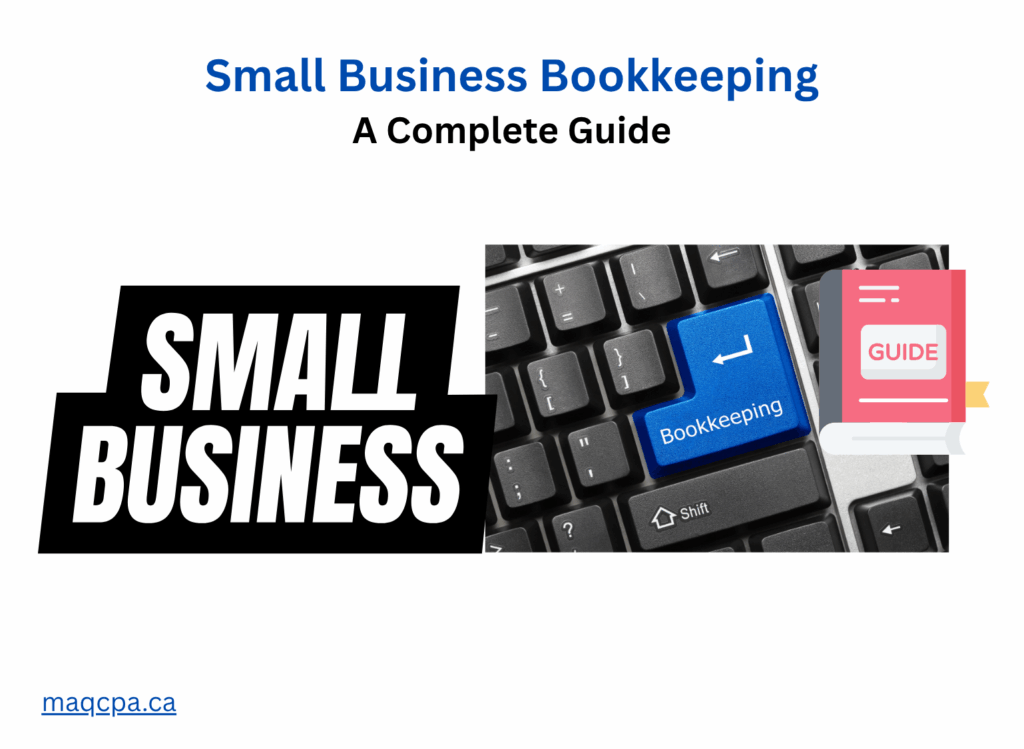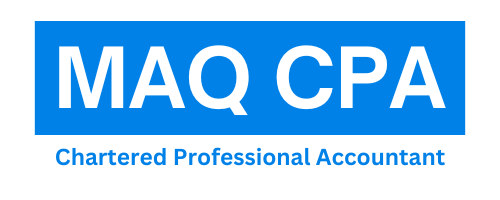If you’re a business owner, solopreneur, or freelancer in 2025, here’s the cold truth: your bookkeeping system can either protect you or punish you.
According to the Canada Revenue Agency, all businesses in Canada are legally required to maintain records for at least six years. But bookkeeping is more than just a compliance task — it’s how you gain control over your business, manage your cash flow, avoid penalties, and stay sane at tax time.
This guide breaks down everything you need to know about small business bookkeeping in plain language. Whether you’re doing it yourself, using cloud software, or thinking of hiring help — you’ll leave this page knowing exactly what steps to take next.
⚠️ Running behind? Don’t worry — we’ll help you catch up.

📌 Key Takeaways
- Bookkeeping gives you clarity, CRA compliance, and financial control.
- You can do it manually, use software, or outsource — but you must do it.
- CRA rules require businesses to keep records for 6 years.
- Choosing the right tool or pro help saves time and reduces audit risk.
- Bookkeeping isn’t just about taxes — it’s about building a stronger business.
💡 Why Bookkeeping Is a Lifeline for Small Businesses
Let’s be honest: Most small business owners didn’t go into business to manage spreadsheets and scan receipts. But poor bookkeeping is one of the biggest reasons businesses:
- Overpay in taxes
- Miss CRA deadlines
- Run out of cash
- Get denied financing
- Face audits and penalties
Bookkeeping gives you:
- Confidence at tax time
- Real-time visibility into your finances
- Evidence if CRA audits you
- Data for decision-making
- Peace of mind
📋 Bookkeeping Basics: What You Actually Need to Track
Here’s what your bookkeeping system should actively monitor every month:
| Category | Examples |
| Income | Sales, freelance gigs, affiliate payments |
| Expenses | Office rent, software, meals, mileage, supplies |
| Sales Tax (GST/HST) | Collected and remitted amounts |
| Payroll (if any) | Wages, CPP/EI deductions, employer contributions |
| Accounts Receivable | Who owes you and how much |
| Accounts Payable | What you owe vendors, suppliers, subcontractors |
| Bank Transactions | Reconciling with business bank & credit accounts |
🧾 Keep receipts and invoices for everything — the CRA expects proof.
🤔 Do You Really Need a Bookkeeper? (DIY vs. Software vs. Pro Help)
It depends on your time, comfort level, and business complexity.
🔄 Comparison Table
| Method | Pros | Cons | Best For |
| DIY (Spreadsheets) | Free, flexible | Time-consuming, error-prone | Side hustlers with few monthly sales |
| Software | Automates entries, tax-ready | Monthly fee, learning curve | Freelancers and small businesses |
| Pro Bookkeeper | Expert handling, CRA compliance | Cost, but saves time and errors | Growing businesses, incorporated owners |
Real Talk:
If you’re billing clients regularly, collecting HST, or have employees — a bookkeeper isn’t a luxury. It’s a safety net.
💻 Best Bookkeeping Software in Canada (2025 Picks)
Here’s what’s standing out this year:
| Software | Best For | Pros | Free Plan? |
| QuickBooks Online | Most small businesses | CRA-ready, powerful features | Yes |
| Wave Accounting | Freelancers & solo pros | Free, Canadian-based, easy to use | Yes |
| Xero | Tech-savvy businesses | Scalable, integrates well | Yes |
| FreshBooks | Service businesses | Invoicing + time tracking | Yes |
⚠️ Tip: Choose Canadian-friendly tools that calculate HST/GST correctly and generate CRA-ready reports.
🗂️ CRA Bookkeeping Rules You Can’t Ignore
The CRA wants you to:
✅ Keep supporting documents: receipts, bank statements, invoices
✅ Store them for 6 years, even digital ones
✅ Track GST/HST collected and remitted
✅ Separate personal and business finances
✅ Maintain records in English or French
Source: CRA – Keeping Records
💡 Audit risk increases if your records are missing or sloppy — even if your income is correct.
🚨 Costly Bookkeeping Mistakes (and How to Avoid Them)
Here are some real-world issues we’ve seen:
❌ Mixing business and personal spending
✅ Open a separate business bank account.
❌ Forgetting to track cash income
✅ CRA still expects this reported — it’s taxable.
❌ Losing receipts
✅ Use an app like Dext or Hubdoc to store them instantly.
❌ Doing your books once a year
✅ You’ll forget expenses, miss deductions, and risk late filings.
🧠 Case: A client who kept receipts in a shoebox found $2,300 in missed write-offs after hiring a pro.
FAQ – Small Business Bookkeeping Toronto / Scarborough / Markham / Mississauga
1. Is bookkeeping tax-deductible?
Yes — services, software, and training costs are deductible business expenses.
2. Can I use spreadsheets for bookkeeping?
Sure, but it lacks automation, tax tracking, and audit-ready formatting.
3. How often should I update my books?
Monthly at minimum. Weekly or real-time is ideal if you have frequent transactions.
4. What if I don’t do any bookkeeping?
You risk CRA penalties, missed deductions, and cash flow issues. Ignorance isn’t an excuse in tax audits.
5. Can I automate bookkeeping completely?
Not fully — but software and a good bookkeeper together can reduce 80–90% of manual work.
Final Words
Bookkeeping isn’t just paperwork — it’s how you protect your business, reduce stress, and position yourself for growth.
You have 3 options:
- Do it yourself (but do it well)
- Use reliable bookkeeping software
- Bring in a professional who knows what the CRA looks for
👉 Feeling behind? We can help you get caught up, cleaned up, and CRA-ready.
💬 Book a Consultation to talk about your bookkeeping needs — no pressure, just clarity.
Read about our small business bookkeeping services.
Disclaimer
The information provided in this blog is for general informational purposes only and does not constitute professional accounting, tax, financial, or legal advice. While we strive to ensure the accuracy and timeliness of the content, the information may not apply to your specific situation or reflect the most current legislative changes. Readers are strongly advised to consult a qualified professional before making any decisions based on the content of this blog. MAQ CPA and its representatives disclaim any liability for any loss or damage incurred as a result of reliance on any information provided herein.
